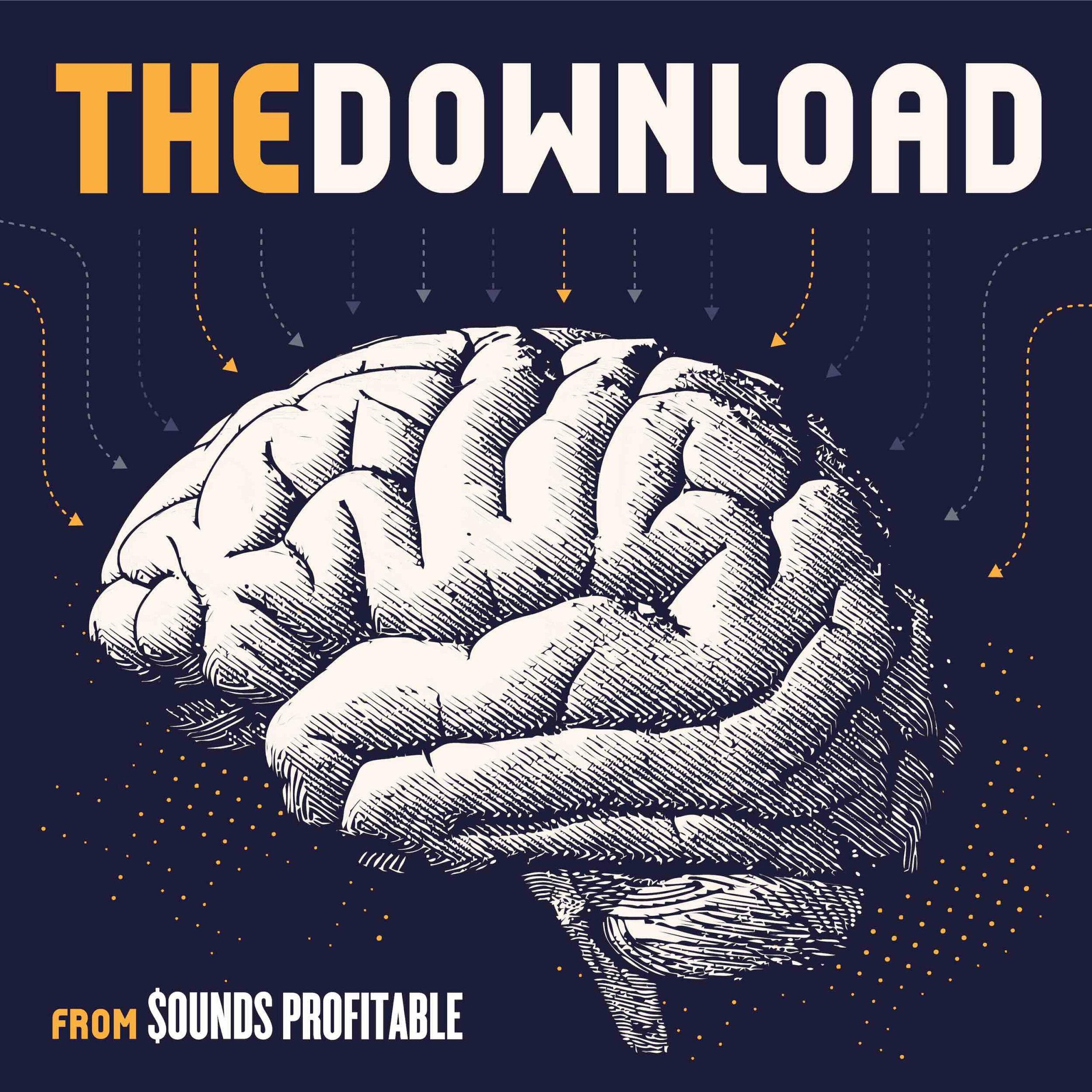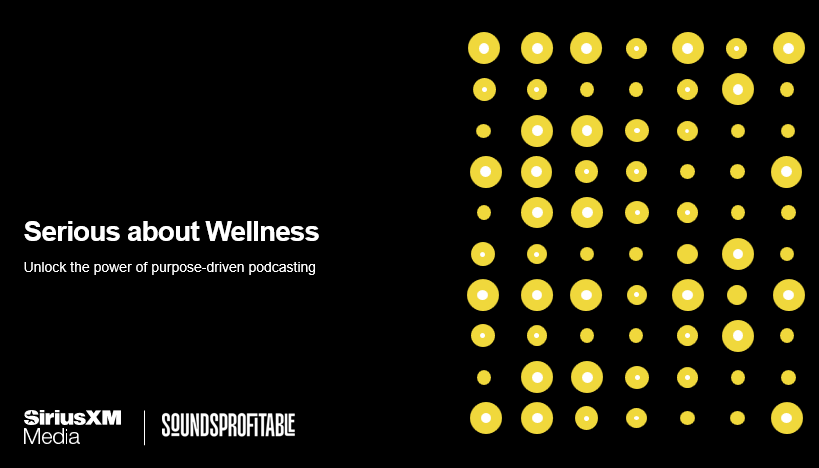This week: Apple’s funding podcasts, brand safety tech continues to divide advertisers, what more can and should ad agencies do to support journalism, Edison’s Latino Podcast Report, and Spotify bundles Chartable and Podsights access for Megaphone users
Apple Ramps Up Its In-House Podcasting Efforts with Studio Deal
Manuela: Rumors of Apple getting into podcasting bore fruit last week with official confirmation. At least, sort of. Ashley Carman and Lucas Shaw’s Bloomberg piece from last Wednesday explains:
“The investments have been led by Apple’s TV studio, rather than its podcast division. Despite being one of the biggest distributors of audio in the world, the company’s podcasting unit has avoided funding individual shows or buying networks because it wants to be seen as a neutral platform.”
That TV division has entered into a deal with Futuro Studios to fund the creation of podcasts while Apple retains first-look rights on film and TV adaptations. In essence, the deal creates a pilot-factory for Apple to generate new IP and test them in the world of podcasting before graduating to the more expensive filmed version.
“Apple hasn’t pumped nearly as much money into original podcasts as Amazon and Spotify Technology SA, which have each spent more than $1 billion acquiring companies and programming. Spotify, Apple’s rival in music streaming, has made some of the most popular podcasts in the world exclusive to its service and thus unavailable to the competition.”
Podcasting is becoming a relatively affordable testing ground for IP instead of fully committing to a TV pilot, along with the added bonus of any successful IP getting a built-in audience of fans before the first day of shooting. Successful shows like Netflix’s Dirty John adaptation are proving the method can work and work well.
‘A key impediment’: Brand safety tech continues to divide advertisers into haves and have-nots
Shreya: This Monday Seb Joseph of Digiday posted an article detailing the growing divide in how advertisers handle being posted to news sites when big, predominantly negative stories break. Nobody wants to be the next viral sensation getting roasted worse than Mr. Peanut when Planters’ ad campaign temporarily killing their mascot coincided with the death of Kobe Bryant.
In a world full of dangerous news cycles, brand safety tech companies like Integral Ad Science are able to impart more granular control over what content is considered brand-safe in a timely manner.
“Then there are those marketers who don’t use the technology. Take British newspaper group Reach plc, for example, which has said the war in Ukraine significantly dampened advertiser demand.
This won’t surprise anyone. The truth is the downside is too steep and the upside too obscure for many marketers to do anything but avoid the polarizing news. That said, not every marketer sees it this way. And if they could afford to, they would advertise on news sites — just in a more nuanced manner.”
An unintended side effect of advertisers deciding what topics are acceptable to block ads on is that some of the biggest news stories are also cutting off some of the potentially best-written journalism of the moment. Joseph quotes Zefr EVP of Strategy and Marketing:
“We actually don’t accept or use keyword blocklists as a policy in our company, because they end up causing the same damage to over-blocking quality voices over and over again and they just don’t work well in UGC environments. We instead apply the GARM [Global Alliance of Responsible Media] models for debated sensitive social issues as a way to keep brands in front of suitable content while avoiding the issues that they’re concerned about.”
Ad Agencies Can, and Should, Do More to Support Journalism
Shreya: Between hedge fund buyouts dissolving seemingly bulletproof institutions and ad dollars drying up when negative stories drop, things are looking rough for journalists. Ricardo Baca writes an impassioned plea for ad agencies, stressing the importance of not only collaborating with journalists but also supporting them with ad buys and subscriptions. He writes from the perspective of having worked on the other side of the fence as a journalist himself years prior.
“To be clear, agencies are partly to blame here. We’re stuck on the same vicious treadmill as everyone else: We see the web traffic going to social media, so that’s where we buy our ads, further siphoning away support from journalism, the snake eating itself. And with news outlets struggling mightily on the revenue front no matter their size—from local alt-weeklies to major metropolitan dailies—I am making a plea for agencies to step up.”
Baca suggests treating relationships with journalists not as transactional, but symbiotic instead. Value their time and they will value yours. Don’t hold grudges when well-researched reporting generates something the client isn’t happy with.
Then there’s the fact that journalism has evolved beyond gumshoe reporters all working for a monolithic outlet. With more forms of professional journalism becoming the norm, so to must go the advertising support.
“Keep in mind that revenue models have shifted. Consider an agency sponsorship for a Substack newsletter, for example. Sponsoring other popular media formats like podcasts, recognizing both a shift in consumers’ habits as well as the continuity involved—someone’s got to be paid to create the stuff—is another way to directly support the trade.”
Gabe’s Section
Manuela: The third annual Latino Podcast Listener Report was published on Tuesday, following a webinar discussing the results presented by Gabriel Soto, my co-host on La Descarga and Senior Director at Edison Research, and Elsie Escobar, Director of Community and Content at Libsyn and co-founder of She Podcasts. Supported by Adonde Media, LWC Studios, Libsyn, PRX, and SXM Media this year’s report revealed many interesting trends as well as new findings.
The study finds that 59% of Latino adults have ever listened to a podcast, up from 56% since last year and up from 45% since 2020.
The lack of Spanish podcast promotion was a recurring theme of the report, and an opportunity exists to bridge such content with foreign born Latinos. The report highlighted the listening gap between Latinos born outside of the U.S. and their U.S. born counterparts. 37% of Latinos born in the U.S. listened to a podcast in the last month, while 29% born outside of the U.S. say the same.
A new statistic released this year revealed seventeen percent of Latino Monthly podcast listeners identify as LGBTQ+. For comparison, the report cited the Gallup poll’s 2021 estimate of 11% of Latino adult population who identify as LGBTQ+
The benefit of advertising on Latino podcasts was also discussed. According to the report, 64% of monthly listeners of Latino-hosted podcasts, say they ever purchased a product or service as a result of hearing a sponsorship or advertising on a podcast, compared with 25% of those who have never listened to a podcast hosted by Latinos saying the same. .
As Gabriel Soto put it, “Latinos in the U.S. control an impressive $1.9 trillion in purchasing power, and today’s data demonstrate how advertisers who support Latino podcast content are benefitting, while those who don’t are missing out,”.
The Latino Podcast Listener Report serves as an invaluable resource to many creators in the podcast space. We’re happy to see the effort continue. You can download the Latino Podcast Listener Report for free at the link in the show notes.
Spotify Launches New Bundle For Megaphone Users, Adding Access To Chartable And Podsights
Shreya: In an email sent yesterday, Spotify has announced they are bundling enterprise access to recently-purchased services Chartable and Podsights into Megaphone.
“With this updated offering, you will be able to easily apply attribution measurement to showcase the value of your podcast promotional efforts as well as your direct sales campaigns. All Megaphone clients will now be able to obtain unique insights about their podcast audience while also measuring the audience growth impact of their promotional campaigns through tools like Chartable SmartPromos and SmartLinks.”
Attribution and growth marketing are the major focus in the world of podcast adtech. One of the largest enterprise-focused hosting platforms acquiring two of the top attribution and analytics solutions and offering them for free to existing users is a big deal budget-wise. Though it is worth noting there are strings attached: they’re free for the first four million impressions.
Since the big Spotify purchase of Podsights and Chartable there’s been a massive hole for third party attribution. Companies like Claritas, Veritonic, and Artsai who’ve started to take on that challenge have had an uphill battle. Both Podsights and Chartable are great pieces of tech, but first-party is not neutral. Offers like this will make it even harder to extract them from their hold on the space and jeopardizes third party measurements value in podcasting.
A good deal, but one to keep in mind when considering the future of podcasting as an industry.
Quick Hits: Recommended Weekend Reading
Manuela: Finally, it’s time for our semi-regular roundup of articles we’re calling Quick Hits. These are articles that didn’t quite make the cut for today’s episode, but are still worth including in your weekend reading. This week’s three great reads are:
How alt.NPR’s experimentation shaped the early podcasting landscape starting in 2005 by Shirley Liu. They didn’t invent podcasting, but NPR was definitely a pioneer. Podcasting opened up NPR to experimentation and launched the careers of so many podcasters.
Ad Disclosure: Podcast Sponsors Aren’t Off the Hook from last Thursday’s PodMov Daily. A story of meal replacement brand Huel getting in hot water over host-read advertising. Podcasting, given its position at the crossroads between radio and influencer marketing, will start to see quite a few stories like this as it continues to enter more mainstream content channels.
Unpaid Internship Rebrands as a $4,000 “Training” by Skye Pillsbury. This issue of Pillsbury’s can’t-miss newsletter The Squeeze covers a story exactly as bad as the headline sounds. A true must-read.


 "
"



